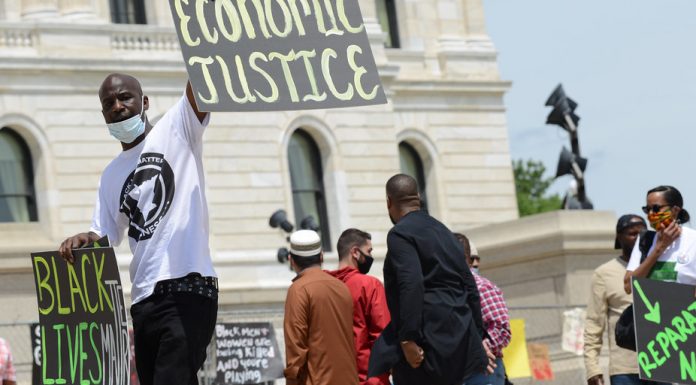(John Murawski, RealClearWire) Until a few years ago, the idea of paying financial reparations to descendants of African slaves was dismissed as a fringe idea.
Now a notion that President Barack Obama once rejected as impractical is becoming public policy.
California offers a dramatic example as officials there review a proposal that could pay in excess of $1 million each to some black residents, while more than a dozen U.S. municipalities are moving ahead with their own race-based programs to redress the legacies of slavery.
But the reparations movement is bigger and wider than that. Its rise in the United States has inspired a global movement committed to redressing perceived historical injustices to all manner of aggrieved groups.
The causes include gay reparations, climate reparations, colonial reparations, university reparations – and Roman Catholic Church reparations for officially sanctioning colonization, slavery, and genocide in the New World. Scholars, activists and legislators across the United States and Europe and in former colonies are drawing on the logic and language of the black reparations movement and international human rights law to make the claim that their causes also deserve atonement and compensation for past wrongs.
Some warn that reparations open a controversial and bottomless Pandora’s Box, given history’s long catalogue of official policies that criminalized or discriminated against sex workers, polygamists, Jews, Catholics, Slavs, and the Roma, among a vast array of potential claimants.
“If we pay reparations to black Americans, there’s no way it ends with black Americans,” said Wilfred Reilly, a conservative political science professor at Kentucky State University and author of “Hate Crime Hoax: How the Left is Selling a Fake Race War.” “Once you start paying people for things that happened in the past before their lifetimes, you’re setting precedent there.”
Reparations advocate William Darity, a Duke University economist and one of five economic advisers to the California Reparations Task Force, acknowledged that claims against the United States and other European nations that enslaved Africans could potentially lead to similar claims against Western and non-Western countries that, in a previous political configuration in past centuries, engaged in slaving, concubinage, and other practices that were formerly accepted but are now viewed with moral revulsion.
“I would encourage the people who are concerned about these histories of injustice to do the work and make the case,” Darity said, noting that the full scale of potential claims may not be fully appreciated. “It could be immense; it could be enormous.”
A number of new claims are now in play. Gay reparations have successfully won financial restitution for surviving victims of government persecution in the 20th century, including incarceration and maltreatment in Gen. Francisco Franco’s Spain and Nazi Germany (a policy that was continued for another quarter-century in West Germany).
The U.S. movement, led by the Mattachine Society of Washington, D.C., seeks atonement and compensation for the surviving victims of the “Lavender Scare,” the postwar period of mass firings of thousands of gay federal civil servants in the United States who were suspected of being “perverts.”
Over the past decade, more than a dozen Caribbean nations have been seeking debt relief and other reparations from their erstwhile European colonizers for alleged native genocide and chattel slavery. Separately, a delegation that included New York Times writer and 1619 Project architect Nikole Hannah-Jones traveled to Rome last July to press the Vatican to commit the Catholic Church’s global resources to financially repairing the damage caused by the Church’s sanctioning of and benefitting from the trans-Atlantic slave trade.
Advocates of climate reparations seek trillions of dollars in aid from the wealthy nations of the so-called global North to the developing countries of the global South. In response to such claims, the European Union this year agreed to create a climate fund to mitigate the predicted ecological and humanitarian toll that will be caused by greenhouse gas emissions emitted by industrialized powers.
Gay reparations and climate reparations both have been the subject of recent books published by Oxford University Press in 2022 and 2021 and written by serious academics at reputable institutions, Bard College and Georgetown University. Foreign Policy magazine has run lengthy articles in support of gay reparations and climate reparations just in the past few years.
Proposals have also been floated for reparations for abused psychiatric patients and residential aged care patients, as well as compensating all women, whether they work or not, for the alleged income gap – a sign that the concept continues gaining purchase. At the same time, thousands of private individuals have taken matters into their own hands, Venmo-ing cash transfers to black acquaintances or to online fundraising efforts to aid black people in crisis.

